Lawrence University President Mark Burstein officially opens the university’s 170th academic year, along with its 2018-19 convocation series, Thursday, Sept. 13 with his annual matriculation address.
All convocations begin at 11:10 a.m. in the Lawrence Memorial Chapel and are free and open to the public.
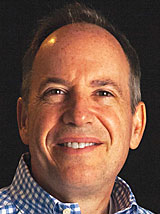
Now in his sixth year as Lawrence’s 16th president, Burstein has focused on creating learning communities in which all members can reach their full potential.
Prior to Lawrence, Burstein served nine years as executive vice president at Princeton University and 10 years at Columbia University as a vice president working in human resources, student services and facilities management.
Joining Burstein on this year’s series will be:
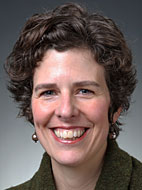
Oct. 23 — Katherine Cramer, professor of political science, UW-Madison
Known for her innovative approach to the study of public opinion, Cramer presents “Listening Well in a World that Turns Away.”
Her scholarship focuses on the way Americans make sense of politics and their place in it. She is the author of “The Politics of Resentment: Rural Consciousness in Wisconsin and the Rise of Scott Walker,” which examines rural resentment toward cities and its implications for contemporary politics. The book earned Cramer the 2017 American Political Science Association’s Qualitative and Multi-Method Research Section Giovanni Sartori Award for the best book developing or using qualitative methods.
She also has written the books “Talking about Race: Community Dialogues and the Politics of Difference” and “Talking about Politics: Informal Groups and Social Identity in American Life.”
After earning a bachelor’s degree in journalism and political science at UW-Madison, she earned her Ph.D. in political science at the University of Michigan.
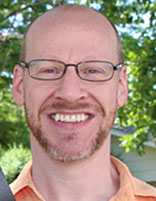
Jan. 17, 2019 — Phil Plait, astronomer
A popular science writer based in Boulder, Colo., Plait is the mind behind the blog “Bad Astronomy,” on which he tries to debunk scientific myths and misconceptions. In 2009, Time magazine included it on its list of the 25 best science blogs. He will deliver the address “Strange New Worlds: Is Earth Special?”
While he’s never been a NASA employee, he was part of the Hubble Space Telescope team at NASA ‘s Goddard Space Flight Center and has been involved with NASA-sponsored public outreach programs for several satellites that study high-energy forms of light emitted by black holes, exploding stars and super-dense neutrons stars.
Pliat, who earned a Ph.D. in astronomy from the University of Virginia, is the author of “Bad Astronomy: Misconceptions and Misuses Revealed, from Astrology to the Moon Landing ‘Hoax’” and “Death from the Skies!,” in which he provides real science behind all the ways astronomical events could wipe out life on Earth.
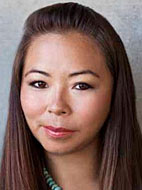
April 11, 2019 — Matika Wilbur, director/photographer Project 562
Wilbur, a member of the Swinomish and Tulalip peoples of coastal Washington, has been on a five-year mission to change the way we see Native America. As a visual storyteller, she has traveled the country with her camera, creating portrait art of the lives and experiences of people from the nation’s indigenous communities. She will present the address, “Changing the Way We See Native America.”
A one-time fashion photographer who earned a bachelor’s degree from the prestigious Brooks Institute of Photography, Wilbur launched Project 562 in 2012 with a goal of photographing and collecting stories of Native Americans from each federally-recognized Indian tribe in the United States. To date she has visited more than 300 sovereign nations in 40 states documenting the diversity, vibrancy and realness of Indian country.
She has taught visual arts at Tulalip Heritage High School in Washington state, providing training and inspiration for the indigenous youth of her own community.
Her photography has been exhibited in national and international venues, including the Seattle Art Museum, the Royal British Columbia Museum of Fine Arts and France’s Nantes Museum of Fine Arts.
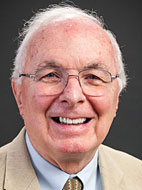
May 22, 2018 — David Burrows, professor of psychology and director of inclusive pedagogy
Burrows, whose address is titled, “Education for Effective Action,” is the 10th recipient of Lawrence’s Faculty Convocation Award, which represents the judgment of faculty peers that the person’s professional work is of high quality and deserves the honor of selection.
His career in higher education spans more than four-and-a half decades, including the past 13 years at Lawrence after joining the administration in 2005 as provost and dean of the faculty. In 2017, he returned to the classroom as a full-time member of the psychology department, where he teaches “Principles of Psychology,” “Cognitive Psychology” and Freshman Studies.
Burrows, who earned a Ph.D. from the University of Toronto, taught and served as psychology department chair at the State University of New York at Brockport and spent 17 years at Skidmore College, where he was department chair and associate dean of the faculty. Immediately prior to Lawrence, Burrows served as vice president for academic affairs and dean of the college at Beloit College from 1997-2005.
His current scholarship focuses on how students learn in college settings. He has worked with students to help them develop good self-evaluative skills as an enhancement for learning and is interested in the concept of engagement as a critical factor in learning and cognitive development.
About Lawrence University
Founded in 1847, Lawrence University uniquely integrates a college of liberal arts and sciences with a nationally recognized conservatory of music, both devoted exclusively to undergraduate education. It was selected for inclusion in the book “Colleges That Change Lives: 40 Schools That Will Change the Way You Think About College.” Engaged learning, the development of multiple interests and community outreach are central to the Lawrence experience. Lawrence draws its 1,500 students from nearly every state and more than 50 countries.